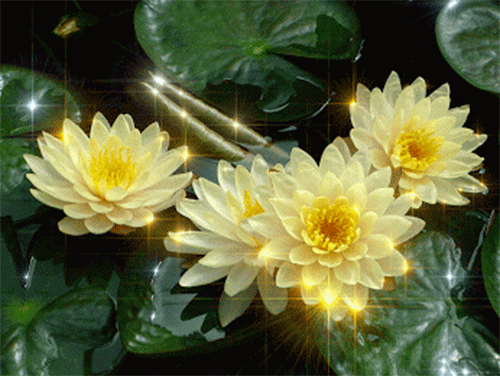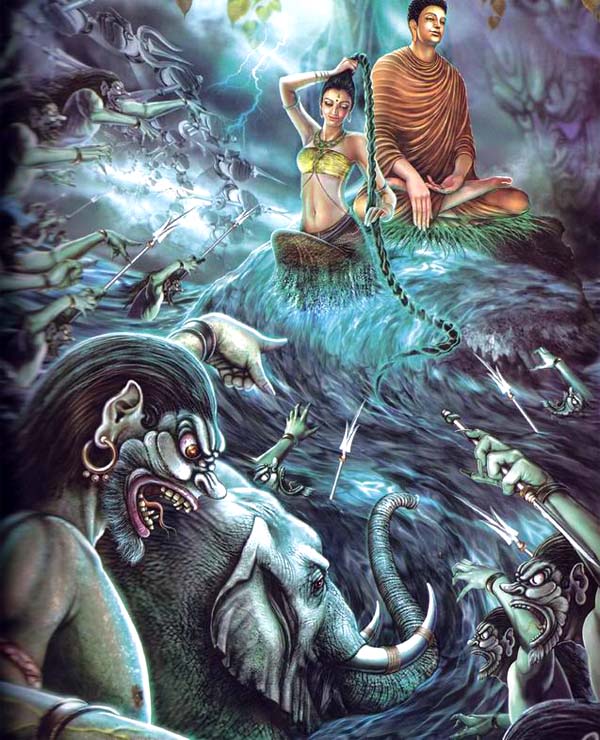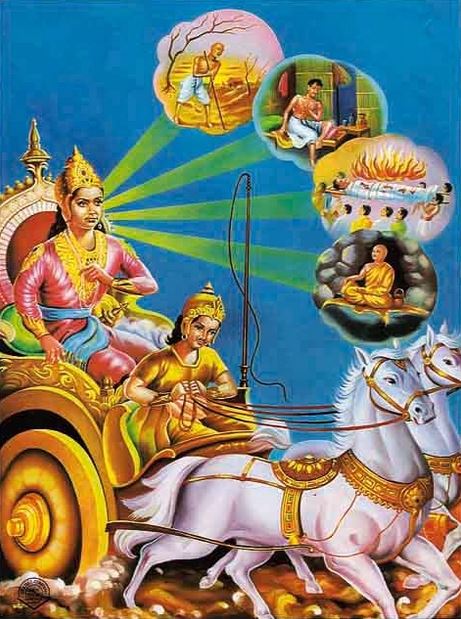-
Comment July 5, 2015
-
Doer of good and evil-doer
Comment July 5, 2015It may be ill with the doer of good as long as the good ripens not.
But when it does ripen, then the doer of good sees (the pleasant results of)
his good deeds. It may be well with the evil-doer as long as the evil ripens not.
But when it does ripen, then the evil-doer sees (the painful results of) his evil deeds.~Buddha, The Dhammapada
-
Just look and just listen
Comment July 5, 2015 -
To a wise man
Comment July 5, 2015 -
Nowhere in the world
Comment July 5, 2015Neither in the sky nor in mid-ocean, nor by entering into mountain clefts,
nowhere in the world is there a place where one may escape from the results
of evil deeds.Neither in the sky nor in mid-ocean, nor by entering into mountain clefts,
nowhere in the world is there a place where one may will not be overcome by death.~Buddha, The Dhammapada
-
ខែ្មរមានតែមួយ Khmer mien tae muoy
Comment July 5, 2015 -
Sleepy and hungry kitty
Comment July 5, 2015Cat Feeding Mistakes: Offering Too Little Water
Clearly water is vital, for cats as well as people. Essential to life, water accounts for 60% to 70% of an adult cat’s body weight, say ASPCA experts. A serious water deficiency can have critical repercussions for pets, causing serious illness or death. Although wet foods can go far toward meeting your feline friend’s water needs, cats should also have several sources of fresh water available through the house, say the pros. “Pay attention to where the cat likes to be so that there’s water there,” Case suggests. “And be aware that some cats prefer running water; others can detect the taste of chlorine in tap water so you might want to buy bottled water for them.” Source: WebMD -
Sleepy message
Comment July 5, 2015 -
Study and Experiencing
Comment July 4, 2015by Ajahn Chah
Let us talk about the difference between studying Dharma ideas and applying them in practice. True Dharma study has only one purpose-to find a way out of the unsatisfactoriness of our lives and to achieve happiness and peace for ourselves and all beings. Our suffering has causes for its arising and a place to abide. Let us understand this process. When the heart is still, it is in its normal condition; when the mind moves, thought is constructed. Happiness and sorrow are part of this movement of mind, this thought construction. So also is restlessness, the desire to go’ here and there. If you do not understand such movement, you will chase after thought constructions and be at their mercy.
Therefore, the Buddha taught us to contemplate the movements of the mind. Watching the mind move, we can see its basic characteristics: endless flux, unsatisfactoriness and emptiness. You should be aware of and contemplate these mental phenomena. In this way, you can learn about the process of dependent origination. The Buddha taught that ignorance is the cause of the arising of all worldly phenomena and of our volitions. Volition gives rise to consciousness, and consciousness in turn gives rise to mind and body. This is the process of dependent origination.
When we first study Buddhism, these traditional teachings may appear to make sense to us. But when the process is actually occurring within us, those who have only read about it cannot follow fast enough. Like a fruit falling from a tree, each link in the chain falls so fast that such people cannot tell what branches it has passed. When pleasurable sense contact takes place, for example, they are carried away by the sensation and are unable to notice how it happened.
Of course, the systematic outline of the process in the texts is accurate, but the experience is beyond textual study. Study does not tell you that this is the experience of ignorance arising, this is how volition feels, this is a particular kind of consciousness, this is the feeling of the different elements of body and mind. When you let go of a tree limb and fall to the ground, you do not go into detail about how many feet and inches you fell; you just hit the ground and experience the pain. No book can describe that.
Formal Dharma study is systematic and refined, but reality does not follow a single track. Therefore, we must attest to what arises from the one who knows, from our deepest wisdom. When our innate wisdom, the one who knows, experiences the truth of the heart / mind, it will be dear that the mind is not our self. Not belonging to us, not I, not mine, ail of it must be dropped. As to our learning the names of all the elements of mind and consciousness, the Buddha did not want us to become attached to the words. He just wanted us to see that all this is impermanent, unsatisfactory, and empty of self. He taught only to let go. When these things arise, be aware of them, know them. Only a mind that can do this is properly trained.
When the mind is stirred up, the various mental formations, thought constructions, and reactions start arising from it, building and proliferating continually. Just let them be, the good as well as the bad. The Buddha said simply, “Give them up.” But for us, it is necessary to study our own minds to know how it is possible to give them up. Continue reading
-
Ending Doubt
Comment July 4, 2015by Ajahn Chah
Many people who have studied on a university level and attained graduate degrees and worldly success find that their lives are still lacking. Though they think high thoughts and are intellectually sophisticated, their hearts are still filled with pettiness and doubt. The vulture flies high, but what does it feed on?
Dharma is understanding that goes beyond the conditioned, compounded, limited understanding of worldly science. Of course, worldly wisdom can be used to good purpose, but progress in worldly wisdom can cause deterioration in religion and moral values. The important thing is to develop super mundane wisdom that can use such technology while remaining detached from it.
It is necessary to teach the basics first-basic morality, seeing the transitoriness of life, the facts of aging and death. Here is where we must begin. Before you drive a car or ride a bicycle, you must learn to walk. Later, you may ride in an airplane or travel around the world in the blink of an eye.
Outward, scriptural study is not important. Of course, the Dharma books are correct, but they are not right. They cannot give you right understanding. To see the word hatred in print is not the same as experiencing anger, just as hearing a person’s name is different from meeting him. Only experiencing for yourself can give you true faith.
There are two kinds of faith. One is a kind of blind trust in the Buddha, the teachings, the master, which often leads one to begin practice or to ordain. The second is true faith-certain, unshakable-which arises from knowing within oneself. Though one still has other defilements to overcome, seeing dearly all things within oneself makes it possible to put an end to doubt, to attain this certainty in one’s practice.

















